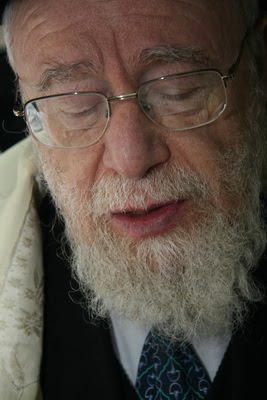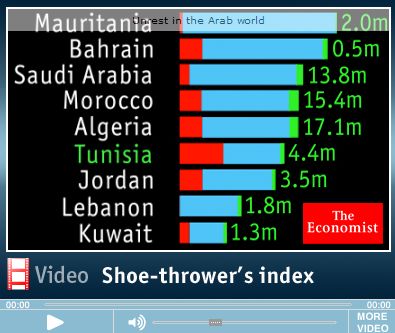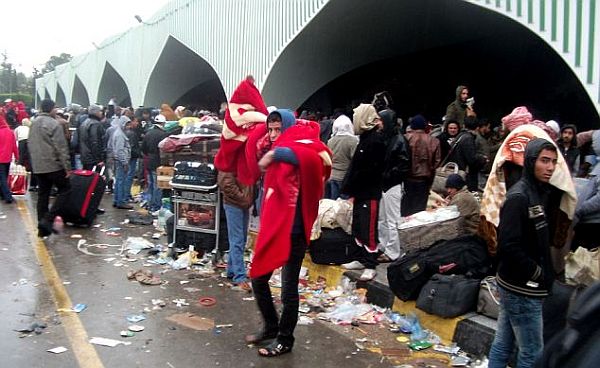A group of Saudi intellectuals have published an open letter calling for national reform.
We are witnessing, along with the rest of the Saudi population, the receding of Saudi Arabia’s prominent regional role; the deterioration of the government apparatus and administrative competence; the prevalence of corruption and nepotism; the exacerbation of factionalism; and the widening gap between state and society, particularly among the new generation of youth in the country. This threatens to lead to catastrophic results for the country and the people, which we will never accept for our nation and its children.
Resolving these conditions requires a serious review and an immediate announcement that both government and society will together adopt a comprehensive reform project that focuses on structural shortcomings in our political system, and that leads our country towards a constitutional monarchy.
The people’s consent is the basis for the legitimacy of authority, and the only guarantee for unity, stability, and the efficiency of public administration, as well as the protection of the country from foreign intervention. This requires a reformulation of the state-society relationship, whereby the people will be a source of authority, and a full partner in deciding public policies through their elected representatives in the Shura (Consultative) Council, and whereby the purpose of the state is to serve society, secure its interests, improve its standard of living, and ensure the dignity of its members, their pride, and the future of their children.
We therefore look forward to a royal declaration that clearly demonstrates the state’s commitment to becoming a “Constitutional Monarchy,” and that puts in place a timeline that delineates the beginning, implementation, and finalizing of the desires reforms. The royal declaration should also confirm the adoption of the major reform goals, namely: the rule of law, full equality between members of the population, the legal guarantee of individual and civil freedoms, popular participation in decision-making, even development, the eradication of poverty, and the optimal use of public resources.
Robert Fisk writes:
[D]emocracy – the real, unfettered, flawed but brilliant version which we in the West have so far lovingly (and rightly) cultivated for ourselves – is not going, in the Arab world, to rest happy with Israel’s pernicious treatment of Palestinians and its land theft in the West Bank. Now no longer the “only democracy in the Middle East”, Israel argued desperately – in company with Saudi Arabia, for heaven’s sake – that it was necessary to maintain Mubarak’s tyranny. It pressed the Muslim Brotherhood button in Washington and built up the usual Israeli lobby fear quotient to push Obama and La Clinton off the rails yet again. Faced with pro-democracy protesters in the lands of oppression, they duly went on backing the oppressors until it was too late. I love “orderly transition”. The “order” bit says it all. Only Israeli journalist Gideon Levy got it right. “We should be saying ‘Mabrouk Misr!’,” he said. Congratulations, Egypt!
Yet in Bahrain, I had a depressing experience. King Hamad and Crown Prince Salman have been bowing to their 70 per cent (80 per cent?) Shia population, opening prison doors, promising constitutional reforms. So I asked a government official in Manama if this was really possible. Why not have an elected prime minister instead of a member of the Khalifa royal family? He clucked his tongue. “Impossible,” he said. “The GCC would never permit this.” For GCC – the Gulf Co-operation Council – read Saudi Arabia. And here, I am afraid, our tale grows darker.
We pay too little attention to this autocratic band of robber princes; we think they are archaic, illiterate in modern politics, wealthy (yes, “beyond the dreams of Croesus”, etc), and we laughed when King Abdullah offered to make up any fall in bailouts from Washington to the Mubarak regime, and we laugh now when the old king promises $36bn to his citizens to keep their mouths shut. But this is no laughing matter. The Arab revolt which finally threw the Ottomans out of the Arab world started in the deserts of Arabia, its tribesmen trusting Lawrence and McMahon and the rest of our gang. And from Arabia came Wahabism, the deep and inebriating potion – white foam on the top of the black stuff – whose ghastly simplicity appealed to every would-be Islamist and suicide bomber in the Sunni Muslim world. The Saudis fostered Osama bin Laden and al-Qa’ida and the Taliban. Let us not even mention that they provided most of the 9/11 bombers. And the Saudis will now believe they are the only Muslims still in arms against the brightening world. I have an unhappy suspicion that the destiny of this pageant of Middle East history unfolding before us will be decided in the kingdom of oil, holy places and corruption. Watch out.


 The wretchedness of the law in the face of Rabbi Dov Lior has many meanings, and Lior’s refusal to be interrogated over his support for “The King’s Torah – The Laws for Killing Gentiles” – only marginally gets at the heart of the matter.
The wretchedness of the law in the face of Rabbi Dov Lior has many meanings, and Lior’s refusal to be interrogated over his support for “The King’s Torah – The Laws for Killing Gentiles” – only marginally gets at the heart of the matter.
